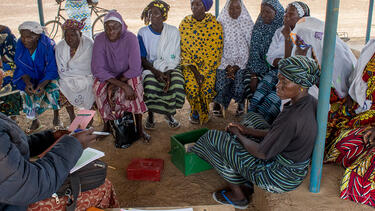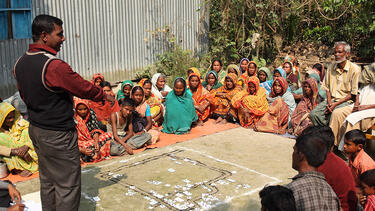Tony Sheldon
How Evidence Can Make International Development More Effective
Research by Yale SOM’s Rodrigo Canales and Tony Sheldon points toward a new model that brings together academics, policy makers, and NGOs from the beginning of the process in order to better integrate evidence generation into policy and practice.

Can the Graduation Approach Help to End Extreme Poverty?
The graduation approach to moving households out of extreme poverty and into sustainable livelihoods requires intensive up-front investments but seems to be cost effective in the long run.

Can Cross-Sectoral Collaboration Reverse the Trend toward Income Inequality?
Income and wealth inequality in the U.S. has become a topic of widespread concern and discussion. A recent panel of Yale SOM alumnae posited that action from the federal government is unlikely. But the panelists found reason for hope in examples of the public, private, and nonprofit sectors collaborating to address the nation’s wealth gap.

What are the realities of microfinance?
New research is debunking myths about microfinance and showing how organizations can effectively address problems associated with poverty. Yale faculty Dean Karlan, Tony Sheldon, and Rodrigo Canales discuss the problems and the promise in the field of microfinance and the lessons for other kinds of social enterprise.
Can markets help the poor?
A loan might allow you to buy a bike to commute to a new job or to nurse your business through an unexpected setback. But billions of people around the world have little or no access to financial markets. Microfinance is one potential solution to this dilemma.